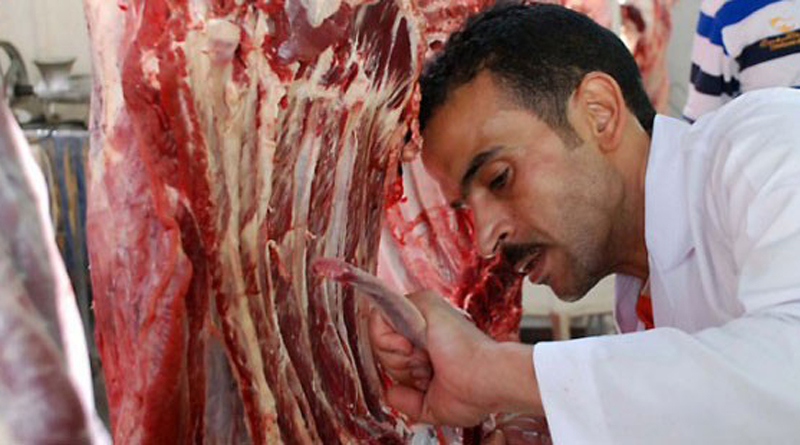As meat prices hit EGP100 per kilo, the government is urged to revise its livestock import policy, Ahmed El-Mahdi reports
With the Greater Bairam (Eid al-Adha) approaching, the local meat market has seen startling price hikes rising to about EGP100 per kilogram over the past few days. This is forcing consumers to launch a meat boycott campaign on Facebook that has generated a wide response across the country.
The Butchers Section at the Cairo Chamber of Commerce insists most people are not buying meat because of their household budgeting ability, not because of the campaign. They blame the stagnation in the market on the decrease in supply and the high prices.
The section is calling on the government to import livestock and not slaughter them in the harbours but distribute them among slaughterhouses across the country to stop the price hikes. They are also calling on the government to adopt a national project for food security and to offer it for public so everyone can have guaranteed availability of basic commodities such as meat, vegetables, fruit and pulses at suitable prices in light of the rises in prices of all foodstuffs. Egypt depends on imports for 80 per cent of its food needs.
Boycotting any commodity requires its availability on the market, even at a high price. However campaigners decline to buy because of the way merchants abuse people’s demand. This, the section says, is not the case with meat, particularly since the product is scarce and production does not meet real demand, which forces a price hike. It also cites the increasing price of production materials, including fodder and vaccines. Many breeders have already left their jobs.
If the slowdown in the market is caused by the decrease in purchases by consumers because of the increase in the prices, and not by the boycott, this could be because if a household allocates between EGP200 and 300 of the household budget on meat then they will buy amounts within that figure, whatever the weight.
Prices for locally produced meat are very high, with a kilogram of beef costing from EGP80 to 90 in middle class neighbourhoods and from EGP90 to 100 in exclusive areas. Veal costs from EGP130 to 140 EGP per kilogram, while lamb meat is between EGP90 and 95 per kilogram.
The section expects a price hike in meat in the near future with the decrease in supply as the Greater Bairam is around the corner. It is asking the government to import bullocks and slaughter them in slaughterhouses in governorates rather that at harbours to guarantee fresh meat in light of the high temperatures and lack of vehicles equipped for their transfer.
The government’s provision of imported meat on the market at prices less than local meat will not solve the problem, especially since people prefer the taste of local meat. Importing is not considered a solution because the state will be under the mercy of the exchange rates of the dollar and the euro, which increases rates of inflation in light of the regress in production, the section says.
It is high time to depend less on imported commodities and provide the needs of foodstuffs locally. The section is calling for the need to make use of Morocco’s experiment in this respect. The kingdom was one of the importers of meat and now they export it.
The crisis is in the prices of commodities in general not just meat. People are no longer able to buy the commodities they need in light of the high prices and poor economic conditions.
President Abdel Fattah El-Sisi is being asked to probe the establishment of a national project for food security to meet the needs of the country for fish, poultry, meat, vegetables, fruit and pulses through a public offering and to reclaim land and develop wasted animal wealth.


